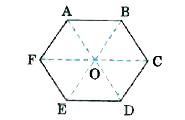→aand−−→−a are collinear (true or false)Solution in Malayalam
1
Topper's Solved these Questions
Similar Questions
Consider the points A(0,0,2) and B(3,0,1) . Write direction ratio of the joining A and B.
View SolutionSupposing Newton's law of gravitation for gravitation force F1 and F2 between two masses m1 and m2 at positions r1 and r2 read F2=−F2=r12r312GM20(m1m2M20)n where M0 is a constant dimension of mass, r12=r1−r2 and n is number. In such a case.
View SolutionA charged particle can be deflected by electric and magnetic filed both The electric force→Fe=q→E and magnetic force −→Fm=→qv×→Bq = charge in coulomb, oversetrarrV is velocity in m//s →E is electric filed strengh in N/C and B is magnetic field strength in tesla (T) If a moving charged particle enters simultaneous electric and magnetic field, the net force on the charged particle is
→F=q(→E+→v×→B)
If →F=0 the charged particle will move undeflected in simultaneous fields
A charged particle moves in simultaneous electric field →E and magnetic field →B If the charged particle passes undeflected , then the value of electric field vectore →E must be .
View SolutionA charged particle can be deflected by electric and magnetic filed both The electric force oversetrarrF_(e) =qoversetrarrE and magnetic force oversetrarr(F_(m)) = oversetrarr(qv)xxoversetrarr(B) q = charge in coulomb, oversetrarrV is velocity in m/s oversetrarrE is electric filed strengh in N//C and B is magnetic field strength in tesla (T) If a moving charged particle enters simultaneous electric and magnetic field, the net force on the charged particle is oversetrarr(F) =q(oversetrarrE +oversetrarr(v) xx oversetrarrB) If oversetrarr(F) =0 the charged particle will move undeflected in simultaneous fields If electric field is along Y axis and charged particle moves along X axis the magnetic field must be .
View SolutionA charged particle can be deflected by electric and magnetic filed both The electric force oversetrarrF_(e) =qoversetrarrE and magnetic force oversetrarr(F_(m)) = oversetrarr(qv)xxoversetrarr(B) q = charge in coulomb, oversetrarrV is velocity in m/s oversetrarrE is electric filed strengh in N//C and B is magnetic field strength in tesla (T) If a moving charged particle enters simultaneous electric and magnetic field, the net force on the charged particle is oversetrarr(F) =q(oversetrarrE +oversetrarr(v) xx oversetrarrB) If oversetrarr(F) =0 the charged particle will move undeflected in simultaneous fields If a charged particle moving along x-axis enters the simultaneous electric and magnetic fields at right angles Electric field is along y-axis and magnetic field along z-axis and vgt(E)/(B) the particle will .
View SolutionSatement -1: A beam of electron passes undeflected through region →E&→B
In the region →E&→B are present and perpendicular to each other and the particle is moving perpendicular to both of them .
Statement-2: In the region →E&→B, both are present and perpendicular to each other and the particle is moving perpendicular to both of them.
View SolutionPQRS is a parallelogram and oversetrarr(QS) and oversetrarr(PR) are its diagonals .Show that vec(PR)+ vec(QS)-2vec(QR)=0
View SolutionFor a regular hexagon ABCDEF shown below , prove that
−−→AB+−−→AC+−−→AD+−−→AE+−−→AF=6−−→AO.

View SolutionCan we beam oversetrarr(OA) Ray of oversetrarr(AO) Can write Why? Or why not?
View SolutionGiven co-ordinates of the points A and B as (−1,−2) and (−5,−6) respectively, what is the magnitude of −−→AB ?
View SolutionFind the direction cosines of the vectors, →r1−→r2 whaere →r1=ˆi+ˆj+ˆk and →r2=2ˆi+ˆj+2ˆk.
View SolutionWrite the direction ratios of the vector→a=∧i+∧2j−∧k and calculate its direction cosines ?
View SolutionSuppose ABC is a triangle and D and E are the mid points of AB and AC respectively.
Choose the correct answer from the bracket and fill in the blank
−−→BA+−−→AC=……
(oversetrarr(CB),oversetrarr(BC),1/2 oversetrarrr(BC),2oversetrarr(BC))
View SolutionSuppose a and b represent in magnitude and direction the two sides AB and BC of the regular hexagon ABCDEF as shown in the figure.Find −−→CD,−−→DE,−−→EFand −−→FA in terms of →a"and"oversetrarrb
View SolutionThe position vectors of the points A,B,C are given to be ∧i+2∧j+3∧k,4∧i+4∧k and −2∧k respectively.
Find −−→AB and −−→AC
View Solution
